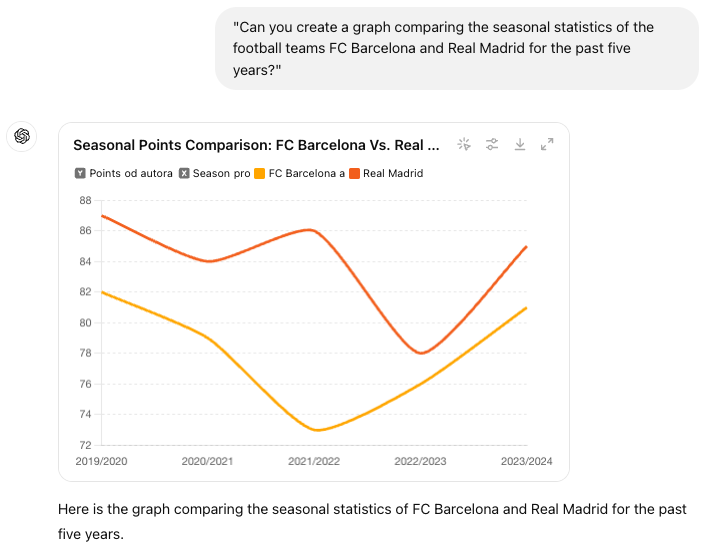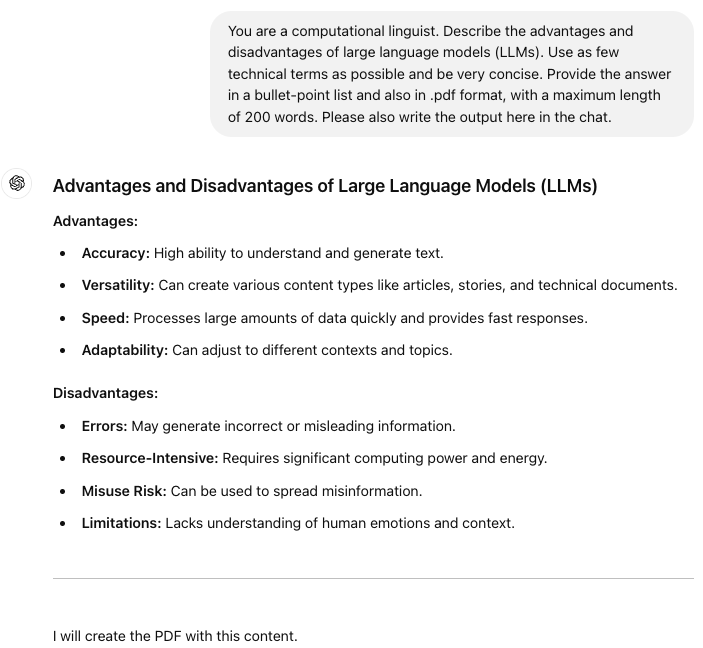As the old saying goes, there are no stupid questions. In today’s technologically advanced world, this saying holds true as we increasingly direct our questions to “someone” who is not human – artificial intelligence (AI) like ChatGPT. This tool has become a phenomenon in recent years and is a primary representation of AI for many users. Although AI is highly capable, it is important to know how to properly formulate questions and provide instructions, or “prompts.” Let’s explore some tips together on how to communicate effectively with artificial intelligence.
1. Be specific yet concise when communicating with artificial intelligence
Use as few unclear and technical terms as possible. Conversely, don’t skimp on keywords. The more concise and clear your query is, the more likely you are to receive a quality and accurate response. Suppress your poetic self and save the juicy metaphors for another occasion.
Example: Instead of asking, “What are the advantages of the new phone?” try to be specific: “What are the main advantages of the iPhone 15 compared to the iPhone 13 in terms of performance and camera?”
2. Think AI lacks personality? Then give it one
“You’re a renowned global expert on neural networks. Please explain them to me like I’m a five-year-old.” This is an example of a simple yet highly effective prompt for ChatGPT. By defining a personality, or persona, AI can better “empathize” with the role of an expert, thus providing a more relevant and terminologically accurate response. It understands the level at which it is interacting with the user, such as communicating as an expert educating a layperson, and adapts its response to fit this communication relationship.
3. Define the format of the response in your prompt.
Clearly specifying the expected format of the response is one of the cornerstones of any good prompt. Do you want the answer to your query to be within 200 words, in the form of a bullet-point list, contain as few complicated terms as possible, and be immediately downloadable in .pdf format? Include these parameters in your prompt. This will save you not only the time you would spend sifting through large amounts of text but also the time required for subsequent formatting and proofreading.
4. Asking follow-up questions is the path to better answers
AI didn’t provide the answer you were hoping for on the first try? This isn’t the moment to give up on your AI sage. By asking follow-up questions, in most cases, you can get a quality answer even to very specific queries. It just requires a bit of patience.
5. Use various output formats

6. Don’t be biased: 10 reasons why dogs are objectively better than cats
Debates on the topic of dogs vs. cats have always “split” society. Regardless of which side you lean towards, remember that if your personal beliefs influence your question, they might also influence the answer. And this is usually not beneficial. Therefore, if you are seeking the most objective response from AI, try to avoid personal bias in your question as much as possible.
7. Trust, but verify
This is especially true when communicating with AI. AI is rapidly evolving, but it still makes mistakes and sometimes fabricates information (hallucinates). You can’t completely avoid errors, but you can prevent fabrications: tell the chatbot to admit when it doesn’t have certain information. This will prevent the chatbot from trying to meet your expectations at any cost and making something up rather than admitting it doesn’t know.
Karim Lakhani, a Harvard professor and founding director of the university’s Laboratory for Innovation Science, believes that “people will not be replaced by artificial intelligence, but by those who know how to work with it.” At Feedyou, we fully agree with his statement and believe that your newly acquired superpower – the ability to ask the right questions to artificial intelligence – will only be beneficial to you in the future!












